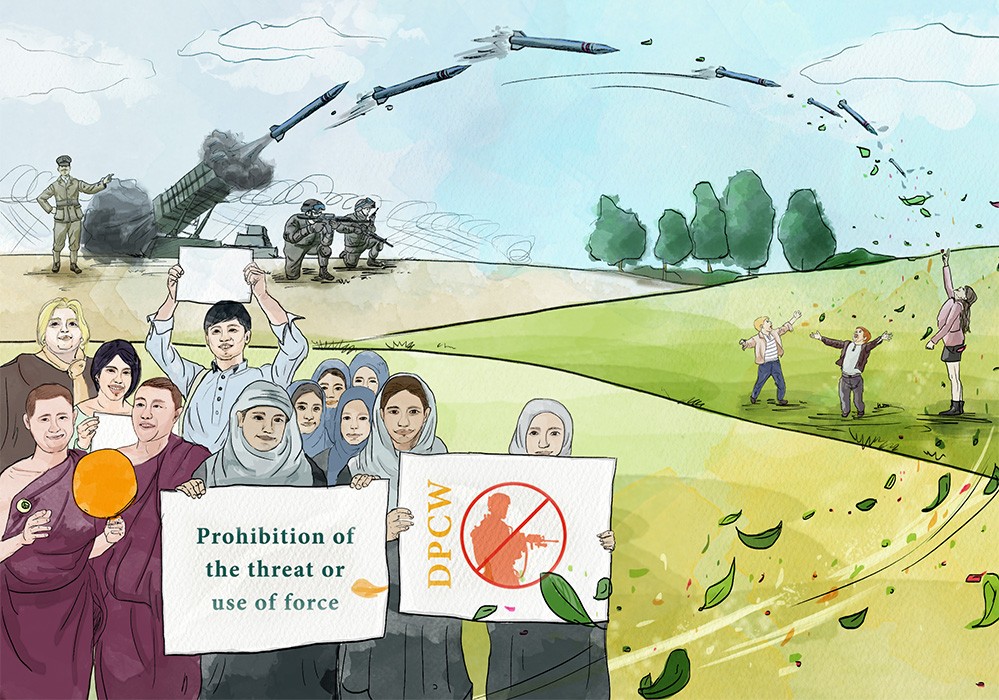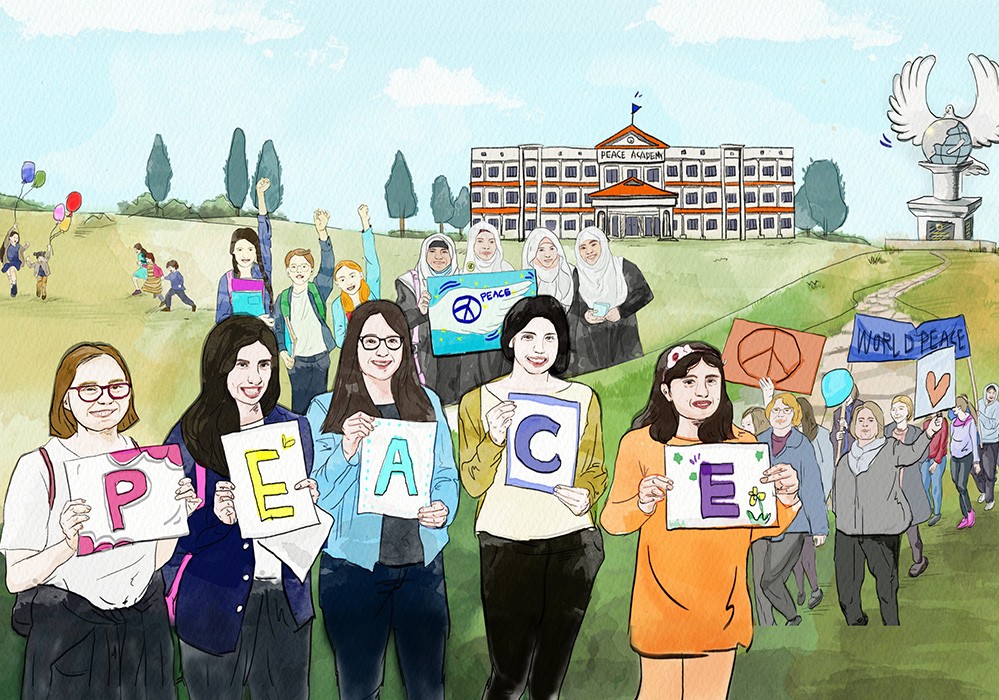The Universal Declaration of Human Rights (UDHR) is a milestone document in the history of human rights. You already know. The Universal Declaration of Human Rights, which marks the 70th anniversary of this year, still holds great significance for us all over the world. Especially this year, the UDHR is asking us, ‘The UDHR don’t have a separate article on ‘Right to Peace’ yet, what does “The Right to Peace” mean to you? I wrote a posting.
#StandUp4HumanRights #peaceday
More info: https://www.humanrights.gov.au/publications/what-universal-declaration-human-rights
Is the UDHR legally binding?
Today, we are going to find out more questions about the Universal Declaration of Human Rights and what UDHR and DPCW have in common. I was really curious, too. “Is the UDHR legally binding?” It’s a globally recognized document and a declaration cited everywhere. It’s so natural to see it. What is the correct answer?
The Universal Declaration is not a treaty, so it does not directly create legal obligations for countries. However, it is an expression of the fundamental values which are shared by all members of the international community. And it has had a profound influence on the development of international human rights law. (Thanks, google)
So what is the exact meaning of being legally binding? Legally binding treaty. This means that states which ratify the treaty are legally bound by it, while states that do not are neither bound by the treaty obligations or entitled to invoke those obligations against other state parties. The HWPL’s DPCW is just walking down this road. The international law so far allowed war in part. So HWPL will make the DPCW a legally binding law to bring it to the United Nations to make a world without war.
What do the UDHR and the DPCW have in common?
The Universal Declaration of Human Rights and The DPCW

DPCW Article 1 – Prohibition of the threat or use of force
2. States should refrain in their international relations from the threat or use of military force against the territorial integrity or political independence of any state, or in any other manner inconsistent with the purposes of the United Nations Charter or international law in general.
DPCW Article 3 – Friendly relations and the prohibition of acts of aggression
1. In accordance with United Nations General Assembly Resolution 2625 (XXV), States should develop friendly relations based upon respect for the principle of equal rights and self-determination of peoples, and should take appropriate measures to strengthen universal peace.
DPCW Article 4 – State boundaries
1. In accordance with United Nations General Assembly Resolution 2625 (XXV), every State has the duty to refrain in its international relations from military, political, economic, or any other form of coercion aimed against the territorial integrity or political independence of any State, or in any other manner inconsistent with the purposes of the United Nations. This is without prejudice to instances when such forms of coercion may be lawfully applied, inter alia, to induce states to cease internationally wrongful acts, or when sanctioned by the United Nations Security Council.

DPCW Article 7 – Right to self-defence
2. Measures taken by states in the exercise of their right to self-defence should be immediately reported to the Security Council and should not in any way affect the authority and responsibility of the Security Council under the United Nations Charter to take, at any time, such action as it deems necessary in order to maintain or restore international peace and security.
DPCW Article 10 – Spreading a culture of peace
1. States should recognize and engage with groups and organizations that seek to further the cause of peace as a global movement. States should facilitate such groups in their awareness-raising activities, including providing tuition in human rights and peace studies, as provided for, inter alia, in the Universal Declaration of Human Rights and the 1999 UN Declaration on a Culture of Peace.
4. States should promote a culture of peace including ensuring conditions in which-
(d) the right to development of peoples, including the achievement of the UN sustainable development goals (SDGs), can be realized; and
We found out more questions about the Universal Declaration of Human Rights and what the UDHR and the DPCW have in common. As much as the UDHR, the DPCW is a milestone document in the history of human rights.
What no other peace law has been able to do, I believe the DPCW WILL be able to do. Why? Because it fills in the loopholes left open by the Geneva Convention & currently has the support of millions of women & youth, in addition to thousands of world leaders.